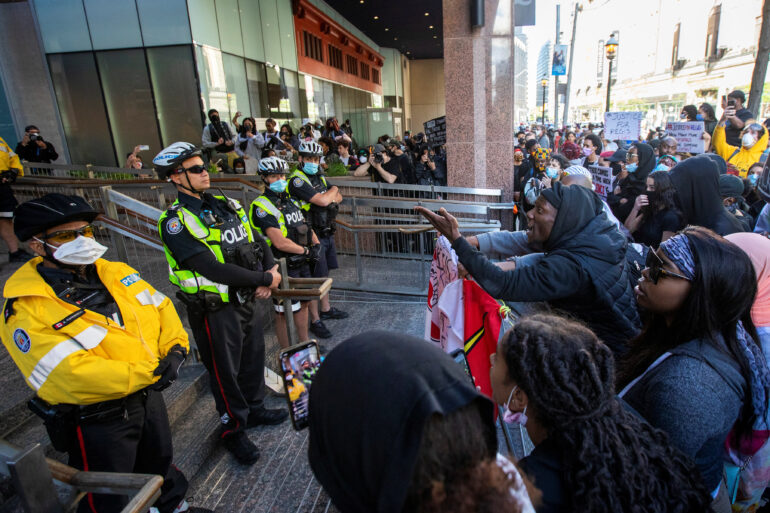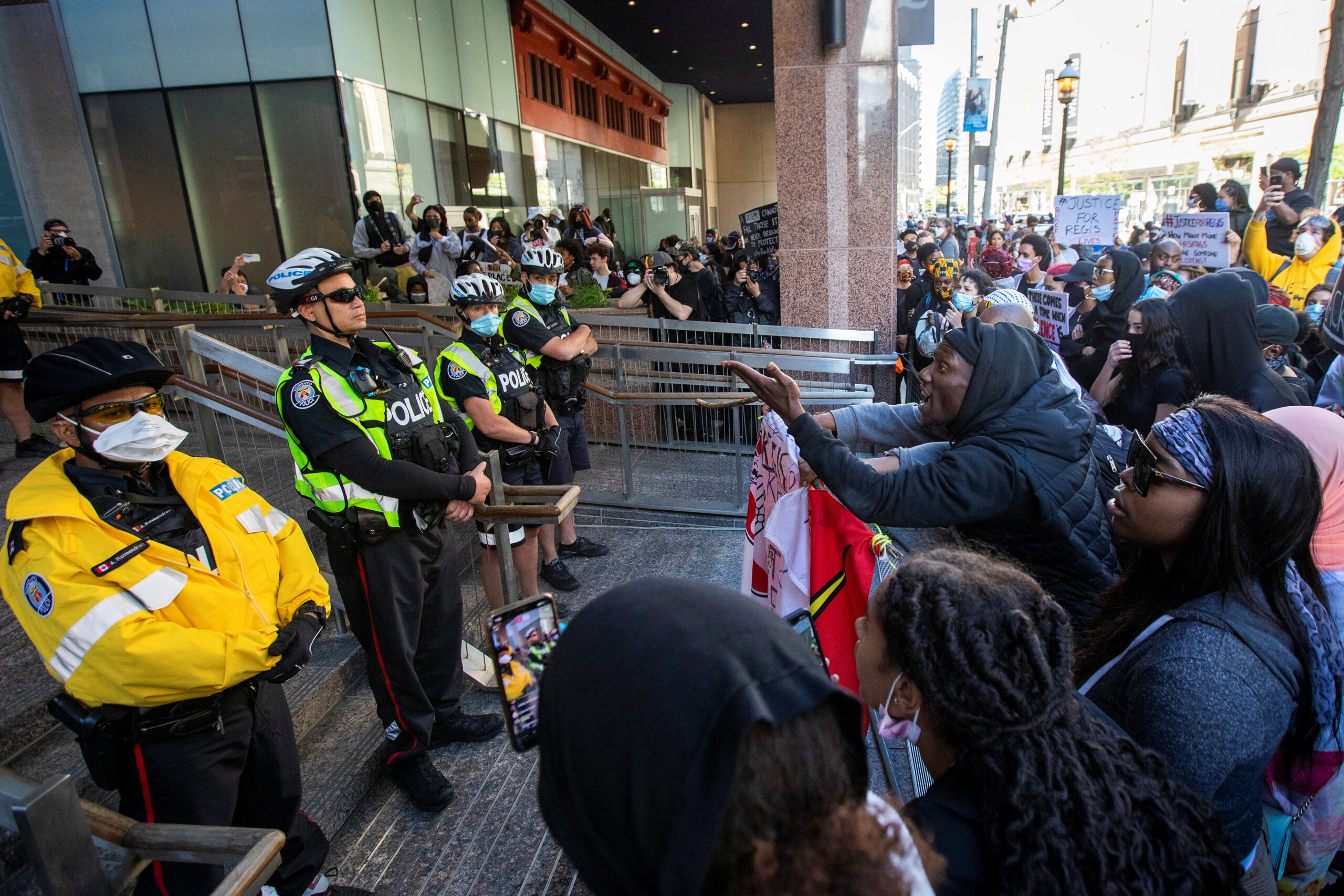
Lucy Lau
A motion requesting a reduction in Toronto’s policing budget is being met with “enormous resistance” before its introduction to council.
Toronto-St. Paul’s Councillor Josh Matlow, who drafted the proposal seconded by Toronto Centre Councillor Kristyn Wong-Tam on June 8, said many council members are opposed to his requests.
These include asking the Toronto Police Service to submit a 2021 budget that is “at minimum” 10 per cent lower than this year’s $1.22 billion allowance, and banning the use of deadly force and military-style weapons on unarmed civilians.
“There is resistance to defund by one per cent, never mind 10 per cent,” Matlow said. “Most of the councillors don’t want to begin defunding at all.”
The motion’s detractors include Mayor John Tory, who has said he supports police reform but not “arbitrary” funding cuts.
“If he has a number that he thinks is less arbitrary, I’d like to hear it,” Matlow said in response to Tory’s comments. “Frankly, I’m convinced that it should be more than 10 per cent.”
Etobicoke North Councillor Michael Ford also dismissed police defunding, saying it’s “not an appropriate response.”
“Making critical and thoughtful investments in social programs that address the root causes of crime, as well as investments in the Toronto Police Service, are essential,” Ford said in a statement on Monday.
“Both have an instrumental role to play in building and maintaining healthy communities. These are not mutually exclusive properties.”
Ford’s statement follows comments made by Premier Doug Ford at a press conference on June 9, when he advocated for the presence of “strong police” in communities.
Both Tory and Michael Ford, the premier’s nephew, are members of the Toronto Police Services Board.
Matlow said resistance against police defunding stems from fears of challenging the status quo and potential backlash from residents who feel reallocating funds from police will make neighbourhoods unsafe, which is “untrue.”
He said this resistance is also rooted in the “political default position” that many politicians take, where police funding is often seen as a suitable response to crime.
“We’ve been conditioned to believe that the police are a big part of the answer to the problems we have,” Matlow said.
Matlow said he has received “thousands” of e-mails from residents in recent weeks requesting police reform, defunding and abolition.
He said, if the motion does not pass, it will “set up a showdown” for this year’s budget process where council will have to consider “not providing the overall budget the police will request.”
A 10 per cent reduction in the 2020 police budget would result in about $122 million of savings, which the motion requests be reinvested in programs that benefit marginalized communities.
The motion also seeks to give council the power to approve or disapprove how Toronto Police Service spends its money.
It was proposed following the death of George Floyd, which has led to ongoing protests against anti-Black racism and police violence around the world.
Matlow said, right now, the city has a say in the total budget but it cannot determine where the police force allocates its funds.
The motion to reduce the police budget by 10 per cent is on the agenda for this month’s city council meeting on June 29 and 30.

